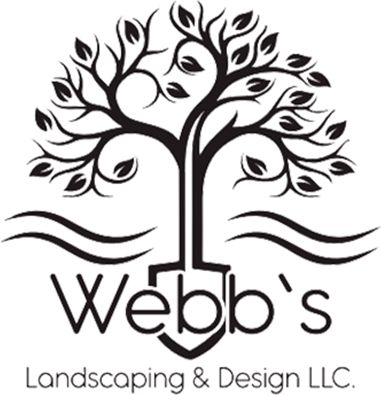Frequently Asked Questions
Webb’s Landscaping and Design, LLC
What Do Retaining Walls Do?
Retaining walls hold back soil and prevent erosion on sloped or uneven terrain. They protect your property from damage and create usable space in your yard.
What Materials Do You Use for Retaining Walls?
We offer a variety of materials for retaining walls such as interlocking concrete blocks, natural stone, and even treated wood, depending on your needs and preferences.
How Much Does a Retaining Wall Cost?
The cost of retaining walls depends on several factors like size, materials, complexity, and site access. We offer free consultations to provide an accurate estimate.
Do I Need a Permit for a Retaining Wall?
Permit requirements for retaining walls may vary depending on your location and wall height. We can help you navigate the permitting process or handle it directly for you.
Can You Incorporate Plants or Drainage Into My Retaining Wall?
Absolutely! We can design and build retaining walls with integrated planters, drainage systems, and even waterfalls for a more functional and beautiful landscape.
What Types of Fencing Do You Install?
We offer a wide range of fences, including wood, vinyl, chain-link, wrought iron, and privacy fences. We can also design and build custom fences.
How Do I Choose the Right Fence for My Property?
We consider factors like privacy needs, budget, durability, and aesthetics to help you select the perfect fence for your home.
Do You Repair or Replace Existing Fences?
Yes, we provide repair services for various fence types and can also completely replace your old fence with a new one.
What About Automatic Gates?
We offer installation and maintenance for automatic gate systems for added security and convenience.
Do You Offer Staining or Painting Services for Wooden Fences?
Yes, we can professionally stain or paint your wooden fence to enhance its appearance and protect it from the elements.
What Are the Benefits of Using Pavers?
Pavers create beautiful, durable, and low-maintenance patios, walkways, driveways, and pool decks. They offer drainage benefits and resist cracking compared to poured concrete.
What Materials Do You Offer for Pavers?
We offer a variety of materials for paving like concrete, natural stone, and even brick pavers, in various colors, textures, and patterns to suit your style.
Can You Design and Install Custom Paver Patterns?
Our skilled team can create unique and eye-catching paver designs to personalize your outdoor space.
How Do I Maintain My Paver Patio or Walkway?
We provide maintenance tips and can also offer professional cleaning and sealing services to keep your pavers looking their best.
What’s the Main Function of a Retaining Wall?
Retaining walls hold back soil, preventing it from eroding or collapsing downhill. They’re crucial for stabilizing slopes, creating level areas on uneven terrain, and protecting structures like foundations or driveways.
What’s the Main Function of a Fence?
Fences primarily define property lines, provide privacy, and offer security. They can also deter trespassers, pets, or wildlife, and create designated areas for specific purposes like gardens or play areas.
Do I Need a Permit for a Retaining Wall or Fence?
Permitting requirements vary depending on your local regulations and the size and height of the structure. It’s always best to check with your building department before starting any project.
What Are Common Materials for Retaining Walls?
Retaining walls could be concrete blocks, bricks, natural stone, timber, and even gabion baskets filled with rocks are popular choices. The ideal material depends on the wall’s height, soil conditions, and desired aesthetics.
What Are Common Materials for Fences?
Wood, vinyl, metal, and composite materials are widely used. Consider factors like durability, maintenance needs, privacy level, and budget when choosing your fence material.
Can I Combine a Retaining Wall and a Fence?
Absolutely! In fact, this is a common and practical solution for properties with sloping terrain. You can build the fence directly on top of the retaining wall or attach it to the wall’s face.
How Much Does a Retaining Wall or Fence Cost?
Costs vary greatly depending on the size, material, complexity of the project, and labor involved. Generally, retaining walls are more expensive than fences due to the engineering and structural requirements.
Can I Build a Retaining Wall or Fence Myself?
Small, simple projects may be manageable for DIY enthusiasts. However, for larger or complex structures, it’s highly recommended to hire a qualified contractor with experience in retaining wall and fence construction.
How Do I Maintain a Retaining Wall or Fence?
Regular maintenance is key to longevity and safety. Check for cracks, leaning, or loose components in retaining walls. For fences, clean and lubricate hinges, repaint or stain wooden fences, and trim overgrown vegetation.
Which One is Right for Me?
Consider your primary purpose, budget, desired aesthetics, and local regulations. If you need to hold back soil or protect structures, a retaining wall is the way to go. If you prioritize privacy, security, or defining property lines, a fence is your best bet. Consulting a professional landscaper or contractor can help you make the best decision for your specific needs.

